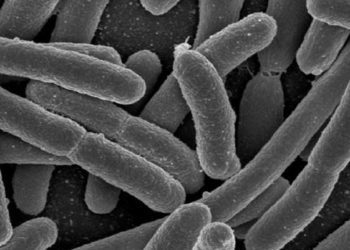Vaccinations may be associated with small but temporary changes in menstrual cycle length
1. Influenza vaccine given alone or concurrently with a COVID-19 vaccine was associated with a small (< 1 day) but temporary change in menstrual cycle length.
Evidence Rating Level: 2 (Good)
Previous studies have reported menstrual disturbances following COVID-19 vaccination, including temporary changes in menstrual cycle length and heaviness in menstrual flow. As menstrual health outcomes have been largely overlooked in previous vaccine clinical trials, research on vaccine-related menstrual changes is limited, particularly for the influenza vaccine and its co-administration with the COVID-19 vaccine. This study thus examined whether influenza vaccination alone or combined with COVID-19 vaccination is associated with changes in menstrual cycle length. This global retrospective cohort study used prospectively collected menstrual cycle data from a digital birth control application from April 25, 2023, to February 27, 2024 (4-5 cycles per individual). Participants aged 18 to 45 years were included if they were not using hormonal contraception and had average cycle lengths of 24 to 38 days across three consecutive cycles prior to vaccination. Among the 1,501 individuals included in the study, 791 were vaccinated for influenza only and 710 were concurrently vaccinated for influenza and COVID-19. Most participants were younger than 35 years (1,230 [82%]). Individuals vaccinated for influenza alone experienced an adjusted mean increase of 0.40 (95% CI, 0.08-0.72) days in menstrual cycle length, while those vaccinated concurrently for influenza and COVID-19 experienced a mean increase of 0.49 (95% CI, 0.16-0.83) days (P = .69 for difference between vaccine groups). During the vaccination cycle, a slightly higher percentage of individuals who received both vaccines concurrently experienced a clinically meaningful change in cycle length of >8 days compared to those who received only the influenza vaccine (42 of 710 [5.9%] vs 37 of 791 [4.7%]), although the difference was not statistically significant. Both vaccination groups returned to their prevaccination cycle lengths in the postvaccination cycle. Menstrual cycle changes were identified when vaccination occurred in the follicular phase, with an increase of 0.82 [95% CI, 0.40-1.24] days for influenza alone and 0.99 [95% CI, 0.55-1.43] days for concurrent influenza and COVID-19 vaccine, but not the luteal phase. Overall, this study found that receiving influenza concurrently with COVID-19 vaccines was associated with a small but temporary change in menstrual cycle length. These findings may assist clinicians in reassuring patients who are concerned about potential menstrual side effects of vaccination.
Click to read the study in JAMA Network Open
Image: PD
©2025 2 Minute Medicine, Inc. All rights reserved. No works may be reproduced without expressed written consent from 2 Minute Medicine, Inc. Inquire about licensing here. No article should be construed as medical advice and is not intended as such by the authors or by 2 Minute Medicine, Inc.









